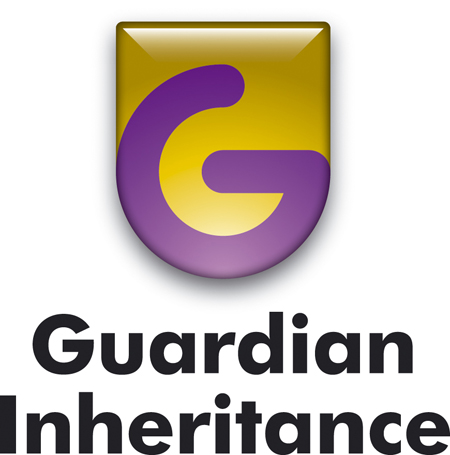.
Peace of mind comes from knowing that the ‘what if’s’ in life have been taken care of.

.
.
"After my father died we looked for his Will. Unfortunately we couldn't find it and he died intestate. It encouraged me to write my own Will. Guardian Inheritance advised and guided me through the whole process and explained how probate works with and without a Will. I decided to store my Will with G.I as they write to my executors to let them know that they are storing my Will. I now am secure in the knowledge that my Will will be safe and secure and my executors will be able to access it when I die."
.
Ms A. Wolverhampton
Probate
Dealing with the estate of someone who has died can be a real challenge. Some will instruct a professional to complete the whole process for them whilst others will do it themselves. As with everything, we at Guardian Inheritance believe that our job is to make sure you have the relevant information required to make an informed choice.
A Barrister Intermediary will help you to work out what will be involved, how much work will be required and how long probate is likely to take. You can then decide whether to do it yourself, receive some assistance with the more complex areas or, have a Guardian Inheritance partner carry out the probate process for you.
A Barrister Intermediary will help you to work out what will be involved, how much work will be required and how long probate is likely to take. You can then decide whether to do it yourself, receive some assistance with the more complex areas or, have a Guardian Inheritance partner carry out the probate process for you.
.
.
In order for your Executors to obtain a Grant of Probate, they will be required to fulfil a series of actions. A brief summary appears, below.
1. Register your death and obtain copies of the death certificate; several may be required.
2. Arrange the funeral.
3. Open a 'Personal Representative's' bank account.
4. Advise all relevant organisations, e.g. all bodies with which you have deposits, investments or life assurance.
5. Value your estate and draw up a schedule of all your assets.
6. Prepare a complete schedule of all your debts.
7. Complete the appropriate forms to obtain Grant of Probate, and if your estate is greater than the current Inheritance Tax threshold, complete the forms required by HM Revenue and Customs.
8. When Grant of Probate has been received, your executors, who may need several Official Office Copies, will have to collect all of your assets together, perhaps selling any property and banking the proceeds in the account set up for that purpose.
9. Once all of your assets have been collected in and prior to distribution of your estate, your Personal Representative should place the appropriate Trustee Act notices in the London Gazette and a local newspaper.
10. When the appropriate period, specified in the above notices has elapsed, the estate can be distributed.
11. Your executor should keep all documents required to obtain Grant of Probate, including the Grant of Probate itself for a period of 12 years from the date of completion of the administration of the estate. This period will be longer where there are still minor beneficiaries or other interests which are still held in trust after 12 years have elapsed.
The majority of executors appoint someone else, usually a Probate specialist or solicitor to act on their behalf. Solicitors will normally calculate their fee as a percentage of the estate, typically 3%.
Guardian Inheritance will be happy to accept the responsibility of completing the Probate process, through the Society of Will Writers, at a fixed fee which is usually substantially lower than most solicitors charge, thereby increasing the amount your beneficiaries inherit, and removing the burden from those closest to you.
1. Register your death and obtain copies of the death certificate; several may be required.
2. Arrange the funeral.
3. Open a 'Personal Representative's' bank account.
4. Advise all relevant organisations, e.g. all bodies with which you have deposits, investments or life assurance.
5. Value your estate and draw up a schedule of all your assets.
6. Prepare a complete schedule of all your debts.
7. Complete the appropriate forms to obtain Grant of Probate, and if your estate is greater than the current Inheritance Tax threshold, complete the forms required by HM Revenue and Customs.
8. When Grant of Probate has been received, your executors, who may need several Official Office Copies, will have to collect all of your assets together, perhaps selling any property and banking the proceeds in the account set up for that purpose.
9. Once all of your assets have been collected in and prior to distribution of your estate, your Personal Representative should place the appropriate Trustee Act notices in the London Gazette and a local newspaper.
10. When the appropriate period, specified in the above notices has elapsed, the estate can be distributed.
11. Your executor should keep all documents required to obtain Grant of Probate, including the Grant of Probate itself for a period of 12 years from the date of completion of the administration of the estate. This period will be longer where there are still minor beneficiaries or other interests which are still held in trust after 12 years have elapsed.
The majority of executors appoint someone else, usually a Probate specialist or solicitor to act on their behalf. Solicitors will normally calculate their fee as a percentage of the estate, typically 3%.
Guardian Inheritance will be happy to accept the responsibility of completing the Probate process, through the Society of Will Writers, at a fixed fee which is usually substantially lower than most solicitors charge, thereby increasing the amount your beneficiaries inherit, and removing the burden from those closest to you.
.
.
.




